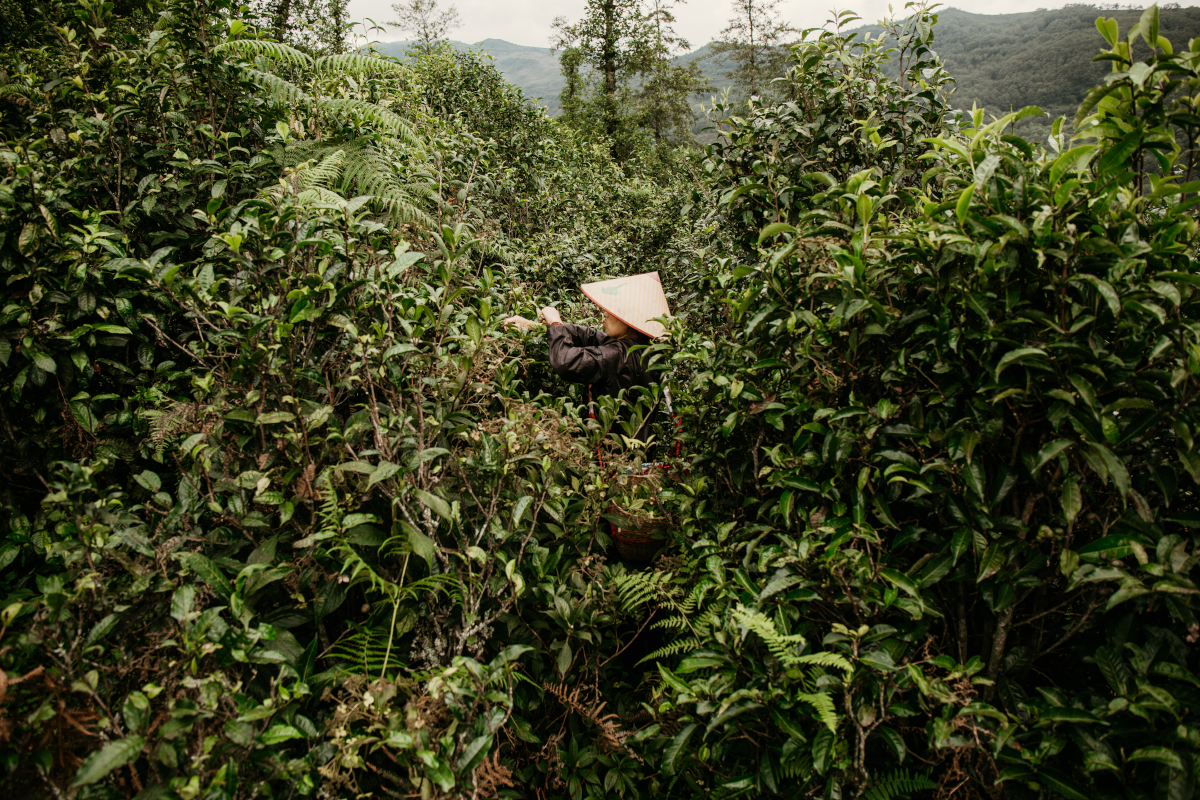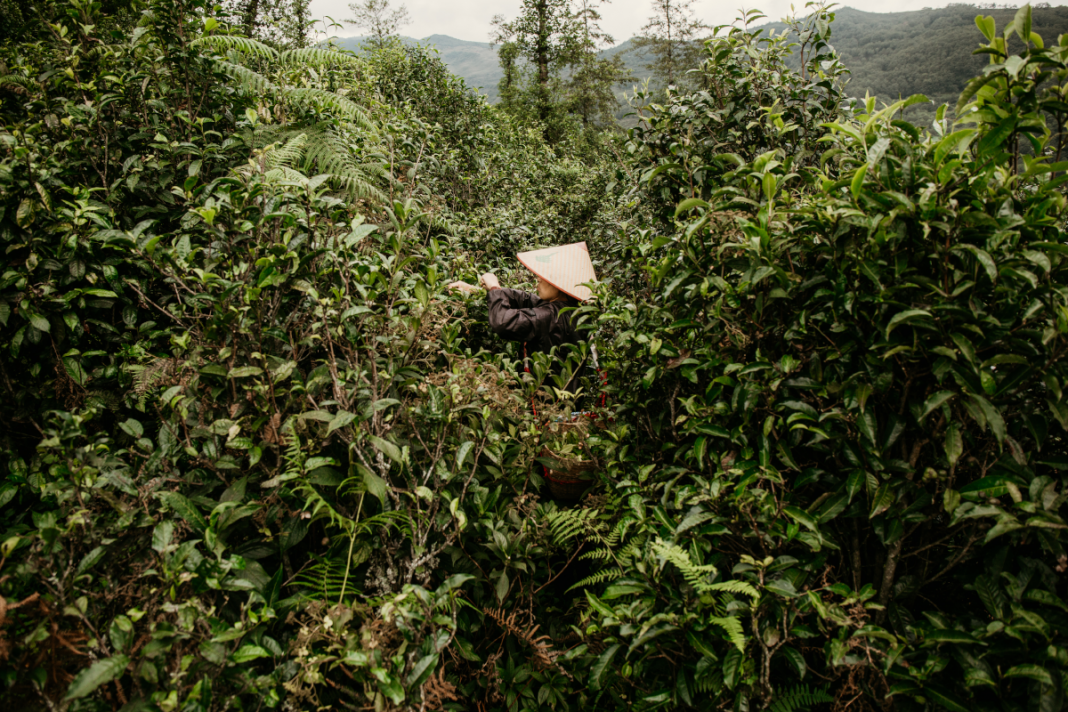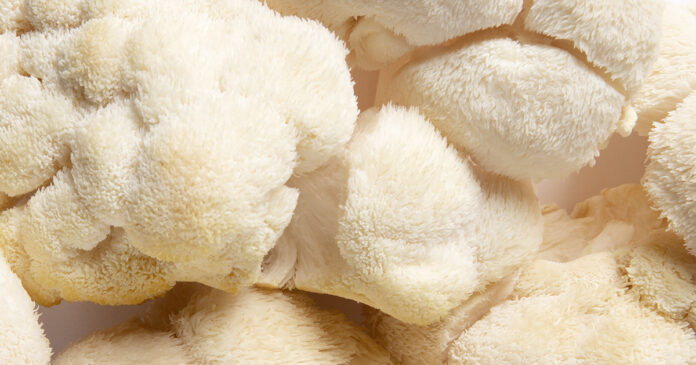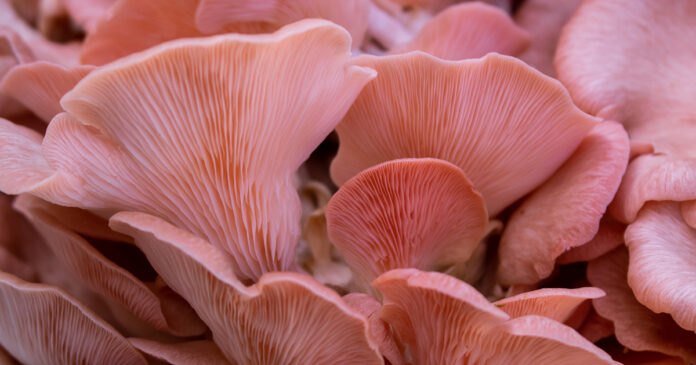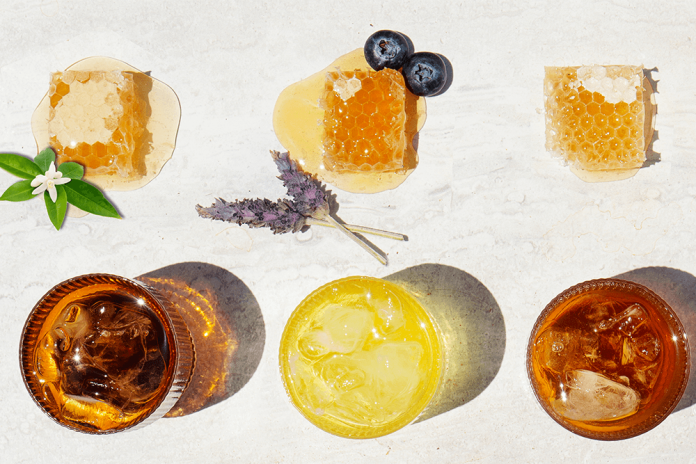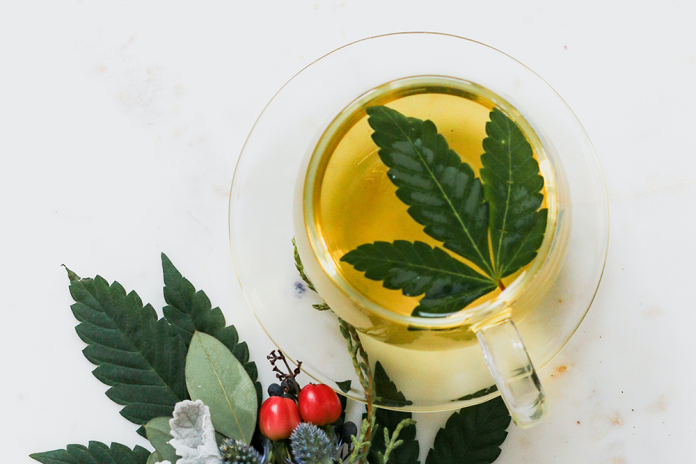As a health-conscious tea lover, you might be willing to spend a few extra dollars on an organic tea company versus a conventional one. After all, investing in high quality nutrition is sure to pay off in terms of improved well-being, right?
But you’ve probably also wondered just how different those two categories are. Are organic foods (and tea varieties) really that much better for us than conventional ones?
According to the USDA, it may depend on the product. Some conventionally grown plants have a higher level of pesticide residue than others. In those cases, the argument for going organic is more clear.
In this article, we’ll break down exactly what it means for a food to be certified organic, look at the problem of pesticide residue on tea leaves, and why it might be better to choose highest quality organic leaves when you brew your next cup of tea.
What Does “Organic” Mean?
Any food — including loose leaf tea or tea bags — that bears the USDA’s “certified organic” seal must meet a specific set of criteria. An organic tea is a tea that was grown without the use of pesticides or synthetic fertilizers, and processed without the addition of artificial colors, flavors or preservatives.
Occasionally, a label may say “made with organic ingredients.” This means that at least 70% of the ingredients were produced organically. The remaining ingredients may contain additives or some pesticide residue. All foods bearing the USDA’s organic label — whether partially or entirely organic — are grown without the use of genetic engineering. [1]
Keep in mind that other terms like “all natural” or “preservative-free” or “non-GMO” don’t mean the same thing as organic. They may fit some of the criteria used to certify organic foods, but unless a food bears the USDA seal of approval, it is not considered organic.
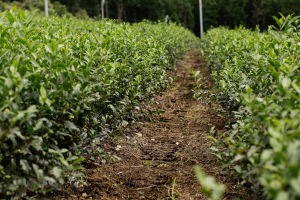
Health Effects of Pesticide Exposure
Conventional farmers use synthetic fertilizers to help their crops grow and pesticides to keep harmful insects, weeds and fungi away. They help farmers make the most of their crop — producing and retaining more of their plant to sell at harvest time.
While that’s great news for the farmers’ business and for a plentiful food supply, these chemicals do present risks to human health. [2]
Epidemiological and animal studies have found positive correlations between exposure to some types of pesticides and cancer. Over time, the EPA has banned certain types of pesticides – like DDT — as their harmful effects became more clear, and has established maximum limits on other pesticides still in use to keep them at levels shown to cause no direct harm. But there are still dozens of pesticides used in the U.S. that other nations, including the EU, Brazil and China, deemed dangerous enough to ban. [3]
Long-term, low-level exposure to pesticide residue can still have negative consequences, including headache, dizziness, fatigue, weakness, nausea, chest tightness, difficulty breathing, insomnia, confusion, and difficulty concentrating. [4]
These effects are usually found in farmworkers who apply the pesticides themselves, and who therefore have much more direct exposure than the average consumer. But, even if your exposure is low-level and indirect, the evidence still supports a link between pesticides and harmful health effects. Reducing your exposure by going organic wherever possible could be the healthiest option.
Pesticide Residue on Tea Leaves
Studies of oolong tea, green tea and caffeine-free herbal tea infusions have found all identified residues from dozens of pesticides – in some cases, as many as 89 types. The concentration of pesticides was considered “negligible” in most cases and present a low health risk — but a risk that nonetheless adds up if you drink tea every day. [5][6][7]
These studies suggest that hotter water temperatures and longer steeping times cause more pesticide residue to seep from tea leaves into the infusion. Rinsing your loose tea leaves before use can also reduce the pesticide risk levels by 5-59%, but it also can slightly reduce the antioxidant content of the leaves as well. [8][9]
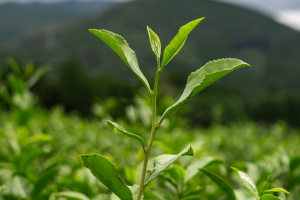
Is Organic Tea Better?
Chances are, you’d rather not compromise your cup of matcha, earl grey, chamomile, rooibos, hibiscus or white tea by rinsing away the phytochemicals that give a tea its unique flavor and aroma, or adjust brewing temperatures and times in a way that under-extracts that flavor.
Choosing certified organic tea leaves is the best way to ensure your brew is really pesticide-free. But there may be health benefits beyond simply eliminating these extra chemicals.
At least one study found that the vitamin, mineral and polyphenol (read: antioxidant) content of organic fruits and vegetables are slightly higher compared to their conventional counterparts. [10] In conventionally-grown crops, added chemicals may protect plants from invasive species, but can also degrade these very fragile nutrients.
Organic tea leaves — either true tea or herbal varieties — may retain more of the anti-inflammatory, immune system supporting, antioxidant power we all want, without the added risks associated with added substances like pesticides.
Additionally, organic farming tends to be more eco-friendly because it supports biodiversity. Though they may damage some crops, a healthy population of insects, weeds and fungi contribute to richer soil and a more sustainable environment. And, supporting organic farms (especially fair trade) means supporting safer working conditions for tea farmers.
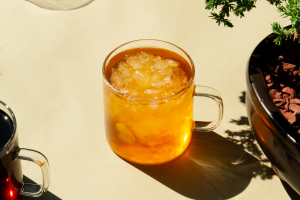
How Do I Find Organic Tea?
The good news is that consumer preference for organic goods and increased international scrutiny of pesticide use is driving safer farming practices that rely more on biological — not chemical — methods to control pests and fungi. [11]
There are many small farms in traditional tea-growing regions in China, Taiwan, Japan, India and Africa that adhere to organic methods… but you might have to do a little research to find them. Always look beyond the label on your favorite brand of tea and dig into their values and practices.
The USDA certified organic label is a guide to brands that avoid potentially harmful chemicals. (All Pique tea sachets are 100% USDA certified organic). And luckily for tea drinkers that like to buy local, there are more and more organic farms growing the Camellia sinensis plant popping up in the United States every year, producing black tea, green tea and Oolong varieties. Same goes for herbals, such as peppermint, dandelion, turmeric and rooibos tea.
According to the U.S League of Tea Growers, there are about 60 tea farms across 15 states. Hawaii in particular is a growing organic tea growing region, thanks to the rich mineral content of its volcanic soil. [12]
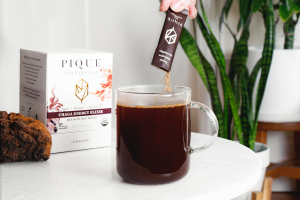
The Takeaway
While the level of pesticides in conventionally grown tea leaves has been deemed generally safe, cumulative exposure can still pose health risks to regular tea drinkers over time. If you’re going to stash tea to drink every day, choosing certified organic whole leaf tea can not only reduce these risks, but also support environmental sustainability (and your wellness)! Look for the USDA certified organic label, and check to see how your favorite tea brands grow their product. Plenty of healthy, organic tea blends are out there!
